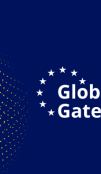Mongolia’s Small Businesses: Switching On the Green Future
With support from the Switching on the Green Economy (SOGE) project, led by People in Need in partnership with the Mongolian Sustainable Finance Association, Development Solutions, and Caritas Czech Republic, and funded by the European Union’s SWITCH-Asia programme, these businesses are becoming models of how small-scale innovation can power a nation’s shift toward a resource-efficient, low-carbon economy.

©NominMunkhjargal 2025
Batbayar’s factory sits on the outskirts of Ulaanbaatar. Inside, hallway lights activate only when someone passes. Smart sockets track power use by phone. Cardboard boxes are stacked neatly for recycling; “Before, we didn’t know what green production or circular economy meant,” he explained. “Now, it’s part of how we work every day.” He gestures toward the insulated walls and smiles. “By 2030, I believe it will be realistic to heat the entire building using 100 per cent renewable energy. Our facility could become a model SME, a kind of green lab for small manufacturers.”

©NominMunkhjargal 2025
Green support that makes a difference
Iromik LLC is one of 23 MSMEs receiving tailored one-on-one consulting and audit preparation through the SOGE project. The project supports Mongolian businesses in adopting circular-economy practices, reducing emissions, and preparing the country’s first national eco-labelling system aligned with international standards. Over the past three years, it has reached nearly 1,800 SMEs and MSMEs, helping them introduce sustainable design, waste reduction, and efficient resource use.

©NominMunkhjargal 2025
When Iromik LLC entered SOGE’s Green Transition Accelerator, Batbayar joined and won a grant competition. “We didn’t do anything extraordinary,” he recalled, “but we took the advice seriously and invested in insulation.” The proceeds went directly into insulating his factory with 10 centimetres of high-density foam. “This was something small producers rarely think about,” he explained. “But it changed everything, less heat loss, lower energy use, and a more comfortable workspace.”
He also received direct consultations from SOGE’s technical experts, who guided him through documentation, energy monitoring, and audit preparation. “We’d never even heard of things like soil degradation assessments or heavy-metal thresholds,” he added. “Now we understand what they mean and how to measure them.”
From research to real products
Across Ulaanbaatar, food technologist D. Oyunchimeg of Magic Foods LLC runs a small factory filled with the aroma of freshly baked cookies. “I didn’t want my research to stay on paper,” she said. “I studied Mongolia’s wild berries and discovered that the leftover skins and seeds still have incredible nutritional value.”
Her company turns those by-products, usually discarded after juice or oil extraction, into flour-based cookies rich in antioxidants, omega-7, and folic acid. “We make functional foods from ingredients that would otherwise go to waste,” she explained.

© NominMunkhjargal 2025
Like Iromik, Magic Foods is among the 23 businesses receiving direct SOGE support. “Just this past spring, they held one of those competitions, and we won 3rd place,” continued Oyunchimeg. “We received a grant, which we used to buy a specific machine, a seed and skin separator. Apparently, only two of these machines exist in Mongolia.”
The new equipment allows her to separate and reuse every part of the berry with almost no waste. Cookie production itself requires virtually no water, only 1-5 litres per day for cleaning, and her oven consumes less energy than standard industrial models. Through SOGE, she met and exchanged ideas with other MSMEs. “We’ve learned from one another how to manage energy, document our processes, and even explore joint partnerships. It’s been a big learning experience,” she said.
A growing movement
Both entrepreneurs represent a growing wave of small businesses proving that sustainability can be practical and profitable. Batbayar and Oyunchimeg are now undergoing their Environmental, Social, And Governance (ESG) audits, the next milestone in Mongolia’s broader effort to mainstream circular-economy principles. Notably, Mongolia stands among the first countries to introduce a second-party verification system for ESG performance, marking a significant step toward credible and transparent sustainability reporting.
For Iromik, certification will validate years of effort to modernise production and meet international standards. “If consumers start recognising ESG labels,” says Batbayar, “they’ll realise that buying locally also supports the environment and their community.”
For Magic Foods, the label will open export doors. “We’re preparing for markets like China and Japan,” said Oyunchimeg. “Once certified, we’ll have proof that Mongolian-made products can compete globally.”

© NominMunkhjargal 2025
“The European Union is proud to support Mongolia’s commitment to green growth through projects like SOGE”, said Ms Ina Marciulionyte, European Union Ambassador to Mongolia. “Empowering Micro, Small, and Medium-sized Enterprises (MSMEs) to adopt sustainable production and eco-labeling practices brings the country one step closer to a resource-efficient, circular economy.”
Linking local stories to a national goal
SOGE works in tandem with the Sustainable Plastic Recycling In Mongolia (SPRIM) project, also funded by the EU’s SWITCH-Asia Programme, which strengthens waste management and recycling systems nationwide. Together, they are shaping a low-carbon, circular economy by improving business standards, community engagement, and policy frameworks.
“Mongolia has over 80,000 registered businesses,” explained Enkhtsatsral Namkhaijantsan, SOGE project manager at People in Need. “If each one takes small steps, saving energy, reducing waste, and adopting eco-labels, the collective impact is enormous.”
For Batbayar, these small steps have been taken. “We recycle, save power, and plan for solar,” he says. For Oyunchimeg, every cookie tells the same story: “Waste can become valuable if you look at it differently.” For both of them, SOGE has given them the tools and confidence to grow sustainably.
In the words of Batbayar: “A good thing is worth pushing through.”
About the project
Switching on the Green Economy is financed by the European Union SWITCH-Asia Programme to support the agri-food and beverage MSMEs and retailers in adopting circular economy practices through a market-based eco-labelling system, capacity-building, behaviour change, and access to green finance. From 2022 to 2024, the project is led by People In Need Mongolia in close partnership with the Mongolian Sustainable Finance Association, Development Solutions, and Caritas Czech Republic.
SWITCH-Asia Programme:
Supports the transition of Asian Countries to a low-carbon, resource-efficient, and circular economy while promoting sustainable production and consumption patterns within Asia and greener supply chains between Asia and Europe.
Contact info:
For project-related inquiries, please contact Enkhtsatsral Namkhaijantsan: enkhtsatsral.namkhaijantsan@peopleinneed.net





